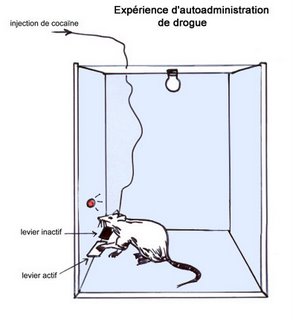It's always the last place you look.
Why would you keep looking after you found it?
There is a notable example of superstitious reasoning in animals experimented upon by Dr. B. F. Skinner. The rats were put into the now-famous "Skinner boxes." These boxes were designed with a lever for the rats to push and there was also a reinforcer, such as chute and door to allow food to be dispensed or an IV or electrode to dispense cocaine or a jolt to the brain's pleasure centers.
When the lever was attached to the reinforcer - i.e., one push equals one reinforcement - the rats would press the lever for food until they were full. However, the rats would continue pressing the lever for cocaine or a jolt to their pleasure centers until they passed out or had a heart attack.
After the rats had learned that the lever was important, the experiment was reintroduced with the lever being unattached to the reinforcer. The reinforcer was administered randomly without any connection to the lever. The rats continued pressing the lever for food even after they were full - perhaps because their next meal had now become uncertain.

But then, the rats did something interesting.
Some of the rats would do some random act (such as scratch behind their ear) before pressing the lever which was shortly followed by the reinforcer. This was viewed by the rat as "successful" even though the scratching had nothing to do with the reinforcement. The rat would continue to do the random act before pressing the lever even after several unsuccessful attempts. The rat seemed to believe that its ear-scratching was improving its chances of success. However, post hoc non ergo propter hoc... just because success followed an event does not mean that the event caused the success.
Why would you keep looking after you found it?
How do you know when you've found "it"?
You don't.
Many people around the tables seem to believe that because they have done certain things and have continued to stay sober that those things caused their sobriety. The Steps are the most notable examples. They point to the rooms full of "oldtimers" who have taken the Steps. The data is skewed. Only those people who have taken the Steps are encouraged to stay in the meetings. People who look askance at the founding texts or ask disturbing questions about the cult-wisdom are effectively ostracized or gossipped about until they are forced to comply... or leave.
I'm happy to be sober for one more day, and I'll say it...
Thanks to the grace of God (which I don't understand), the Twelve Steps (which keeps my focus on betterment), and the fellowship of Alcoholics Anonymous.
There is a notable example of superstitious reasoning in animals experimented upon by Dr. B. F. Skinner. The rats were put into the now-famous "Skinner boxes." These boxes were designed with a lever for the rats to push and there was also a reinforcer, such as chute and door to allow food to be dispensed or an IV or electrode to dispense cocaine or a jolt to the brain's pleasure centers.
When the lever was attached to the reinforcer - i.e., one push equals one reinforcement - the rats would press the lever for food until they were full. However, the rats would continue pressing the lever for cocaine or a jolt to their pleasure centers until they passed out or had a heart attack.
After the rats had learned that the lever was important, the experiment was reintroduced with the lever being unattached to the reinforcer. The reinforcer was administered randomly without any connection to the lever. The rats continued pressing the lever for food even after they were full - perhaps because their next meal had now become uncertain.

But then, the rats did something interesting.
Some of the rats would do some random act (such as scratch behind their ear) before pressing the lever which was shortly followed by the reinforcer. This was viewed by the rat as "successful" even though the scratching had nothing to do with the reinforcement. The rat would continue to do the random act before pressing the lever even after several unsuccessful attempts. The rat seemed to believe that its ear-scratching was improving its chances of success. However, post hoc non ergo propter hoc... just because success followed an event does not mean that the event caused the success.
Why would you keep looking after you found it?
How do you know when you've found "it"?
You don't.
Many people around the tables seem to believe that because they have done certain things and have continued to stay sober that those things caused their sobriety. The Steps are the most notable examples. They point to the rooms full of "oldtimers" who have taken the Steps. The data is skewed. Only those people who have taken the Steps are encouraged to stay in the meetings. People who look askance at the founding texts or ask disturbing questions about the cult-wisdom are effectively ostracized or gossipped about until they are forced to comply... or leave.
I'm happy to be sober for one more day, and I'll say it...
Thanks to the grace of God (which I don't understand), the Twelve Steps (which keeps my focus on betterment), and the fellowship of Alcoholics Anonymous.

0 Comments:
Post a Comment
<< Home